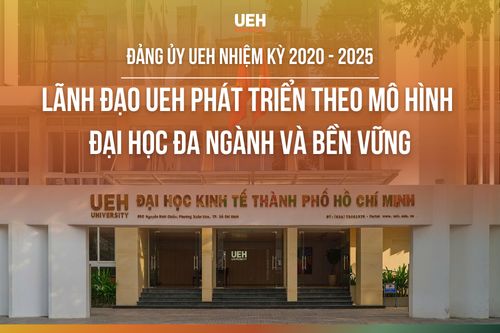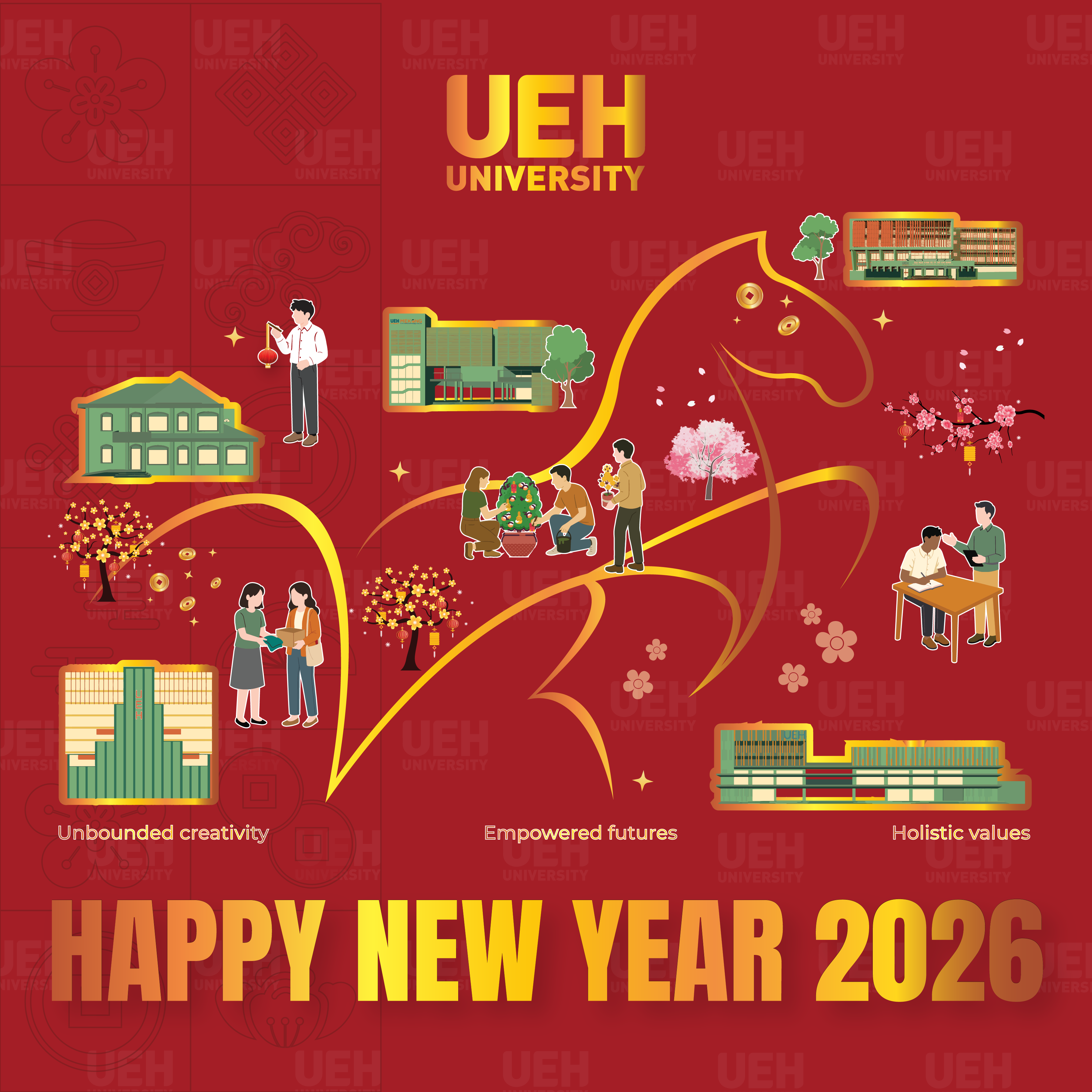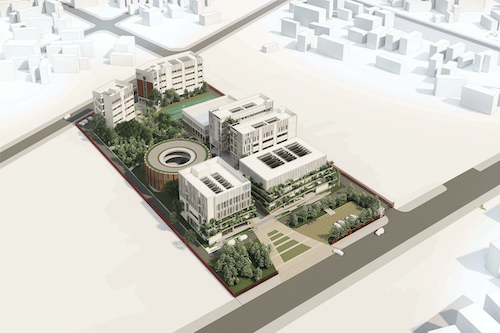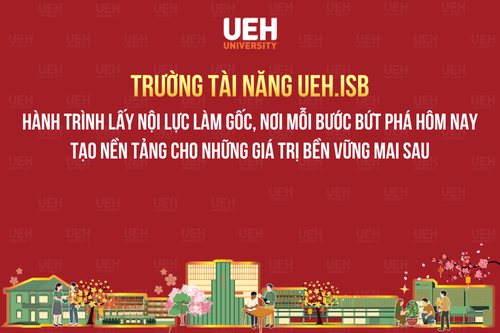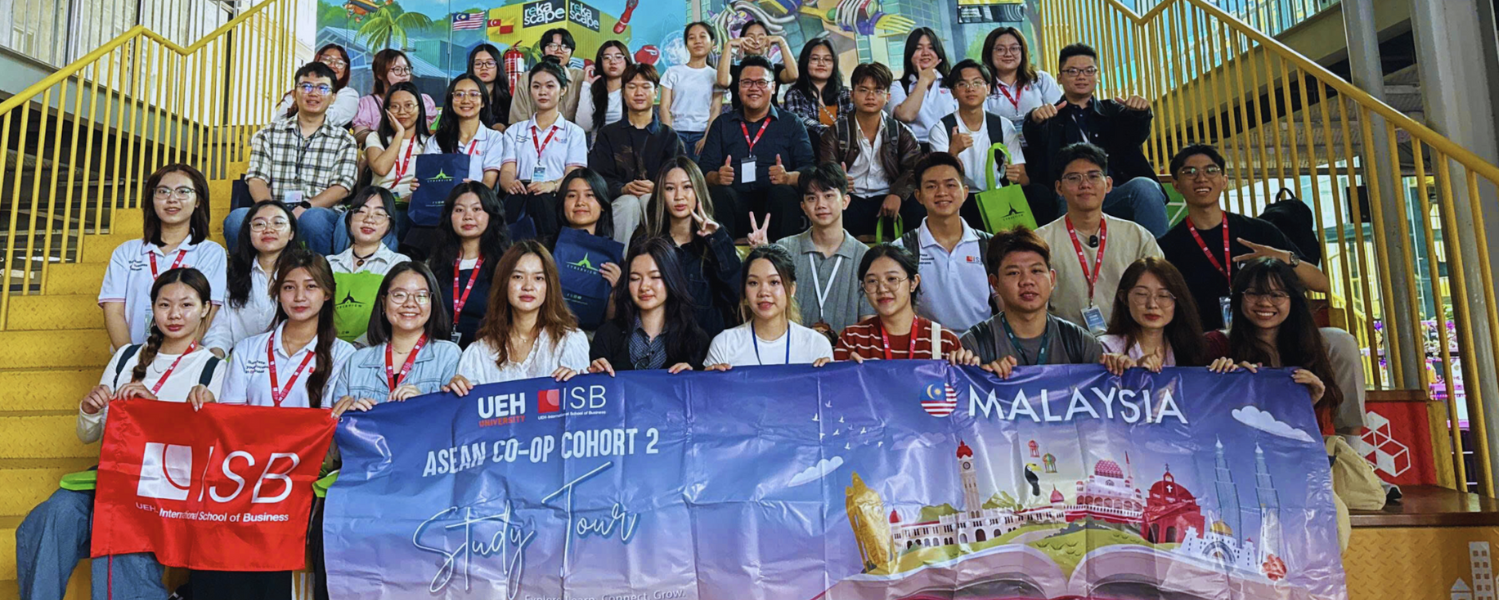
ASEAN Co-op Study Tour: Exploring the Vietnamese – Malaysian Economy Through Micro and Macro Lenses
29 May, 2025
On the journey to becoming global citizens, learning is not confined to the classroom but must also be cultivated through real-world experiences. Recently, students of ISB ASEAN Co-op, Cohort 50, embarked on an engaging Study Tour in Kuala Lumpur, Malaysia. This activity is part of the Co-operative Education model, an educational approach that integrates academic learning with practical experience.
Understanding the Malaysian Economy: From City Streets to Business Models
The study tour commenced with field surveys at Pudu Plaza and the Jalan Bukit Bintang area, where students directly observed and analyzed various retail models, shopping centers, and traditional markets. Based on four economic themes – Economic Growth, Trade Policy, Monetary Policy, and Fiscal Policy – students developed analytical frameworks and collected data to complete related assignments.
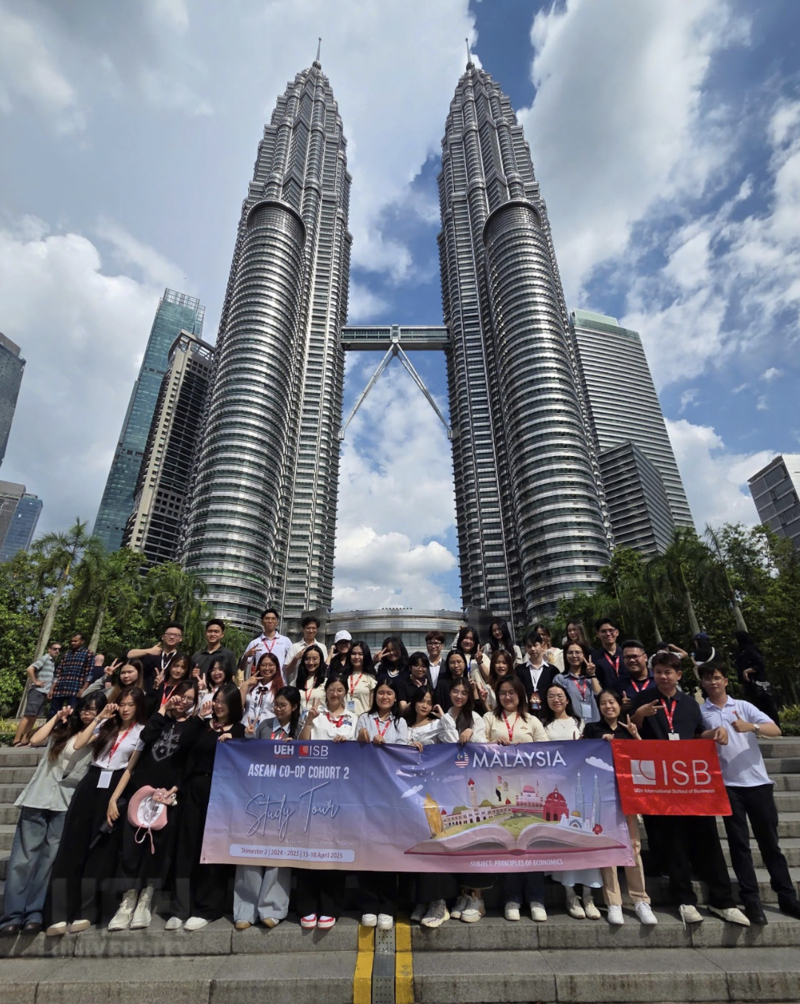
ISB ASEAN Co-op Cohort 50 students at the Petronas Twin Towers – Symbolizing Kuala Lumpur and Malaysia’s modern economy
Role-Playing as Managers to Make Decisions in a Simulated Business Environment
In a special session titled “Learning Through A Game Session” at Universiti Tunku Abdul Rahman (UTAR), students participated in an economic simulation. Here, they assumed the roles of managers, making decisions on costs, pricing, market share competition, and market expansion. Each team faced economic uncertainties such as fluctuating demand and regulatory policies. To succeed, students had to calculate, adjust strategies, and accept risks.
Through this activity, students gained a clearer understanding of the interaction between macroeconomic policy and corporate behavior. Above all, they honed their strategic thinking, analytical skills, decision-making, and adaptability in an ever-changing economic landscape.
Exploring the Malaysian Economy Through Academic and Integration Perspectives
A highlight of the trip was an intensive study session at UTAR. The lecture “Overview of the Malaysian Economy,” delivered by UTAR faculty, provided students with a comprehensive view of Malaysia’s economy from both academic and international comparative perspectives.
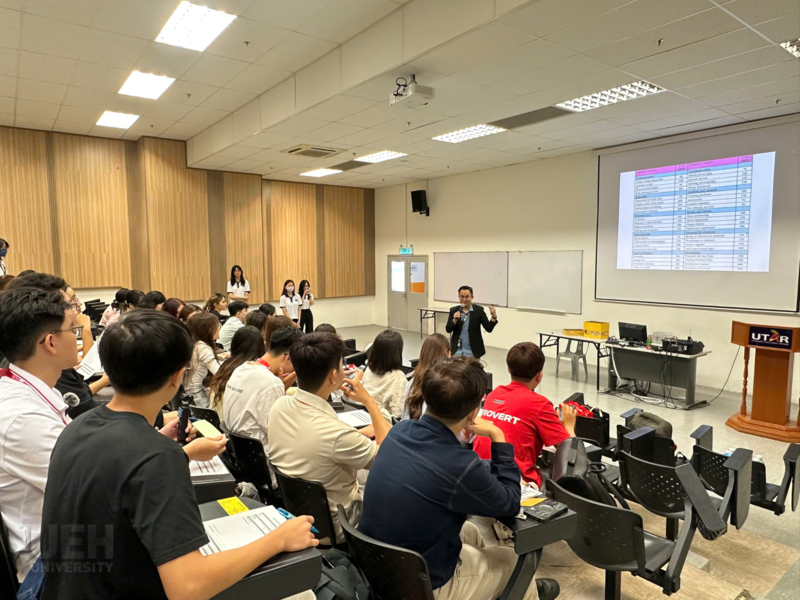
The “Overview of the Malaysian Economy” class at UTAR offers ISB ASEAN Co-op students in-depth insights into Malaysia’s economic structure
This lecture equipped students with a holistic understanding of the core factors shaping the economy, including:
- From Agriculture to Industrialization – Malaysia’s transformation journey in its long-term development strategy;
- ASEAN Integration and International Trade – Malaysia’s position as a strategic economic gateway in Southeast Asia;
- Digital Economy and Innovation – New growth drivers in the digital transformation era;
- The Future Labor Market – Opportunities and challenges amid regional competition.
Confidently Showcasing Academic Prowess in an International Environment Through Academic Presentations
At three partner universities – UTAR, UiTM, and UPM – students experienced extensive learning opportunities. They confidently presented research findings, applying knowledge from field surveys, lectures, and independent analysis to develop arguments, engage in debate, and present before international faculty panels.
These were not merely presentations, but opportunities for students to practice academic communication in English. Through collaboration and exchange with international peers, they also developed critical thinking, teamwork, and presentation skills in a multicultural environment.
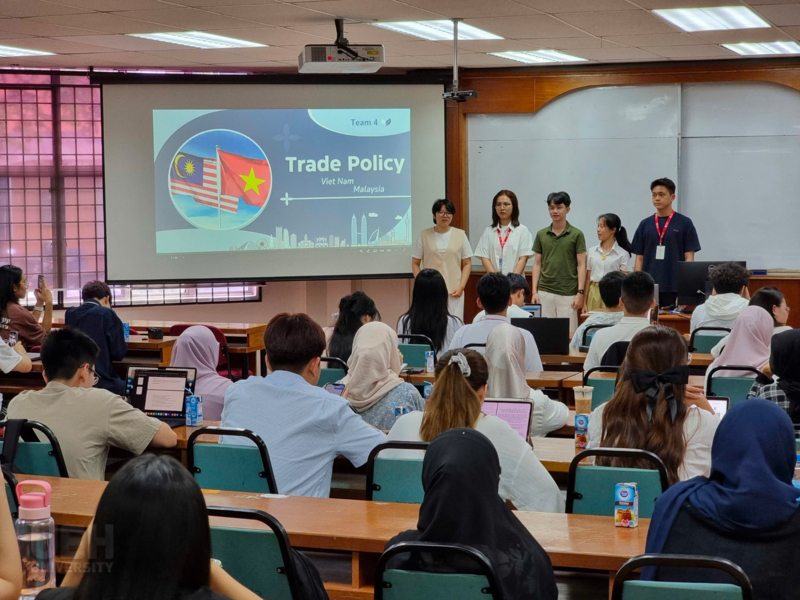 ISB ASEAN Co-op students displaying confidence while presenting their analysis results to faculty from partner universities
ISB ASEAN Co-op students displaying confidence while presenting their analysis results to faculty from partner universities
Learning from Successful Business Models and Strategic Thinking Through Corporate Experiences
Beyond theory, the ASEAN Co-op Study Tour immersed students in Malaysia’s vibrant economic landscape through practical company visits. At each destination, students not only observed but also learned to interpret operational models, development strategies, and policy contexts.
- Bank Negara Museum & Art Gallery: Preserving the nation’s monetary history, enabling students to explore the interconnection between monetary policy, economic development, and local culture;
- Cyberjaya Cyberview Sdn Bhd: Malaysia’s “technology city” exemplifies the national vision for digital transformation, innovation, and public-private partnerships;
- LaLaport Bukit Bintang City Centre: A case study in transforming urban spaces into Japanese-branded retail hubs. Through the visit, students explored cultural fusion, brand positioning strategies, and the challenges of international cooperation in retail.
Each destination provided practical lessons, helping students bridge theory with reality and broaden their understanding beyond the classroom.
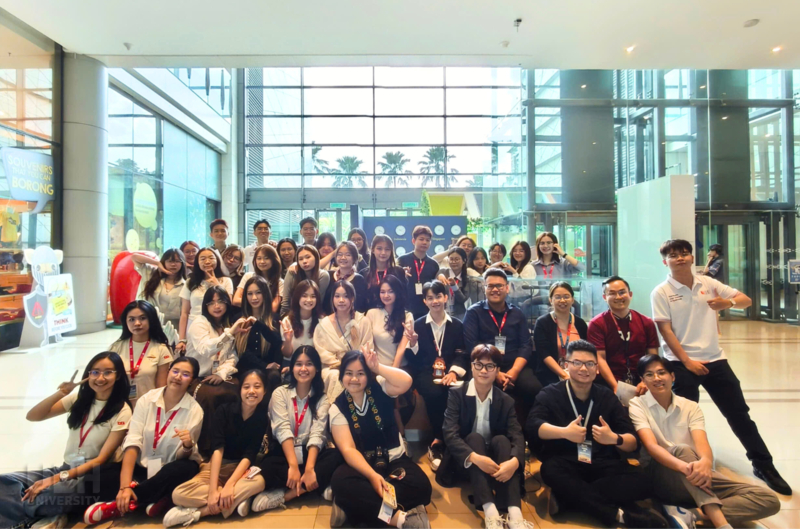
ISB ASEAN Co-op students at Bank Negara Malaysia Museum & Art Gallery – A space connecting monetary policy, history, and local culture
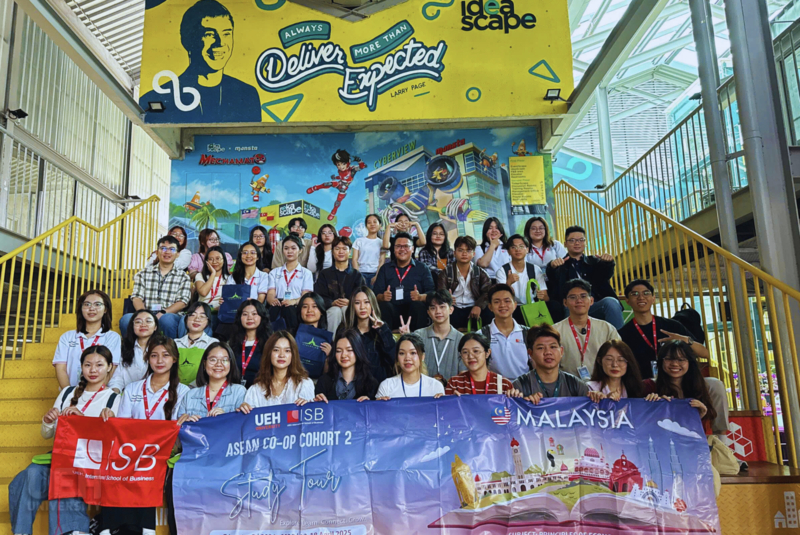 ISB ASEAN Co-op students at Cyberjaya Cyberview Sdn Bhd – Malaysia’s “technology city”
ISB ASEAN Co-op students at Cyberjaya Cyberview Sdn Bhd – Malaysia’s “technology city”
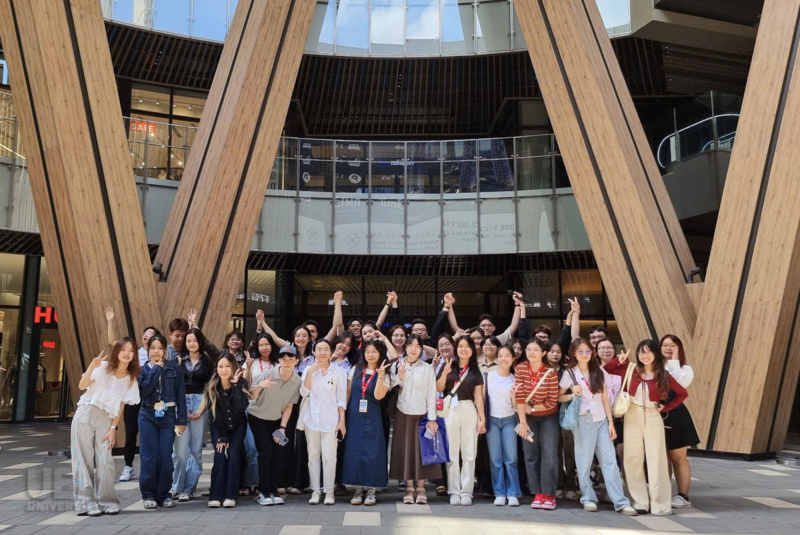 I
I
SB ASEAN Co-op students at LaLaport Bukit Bintang City Centre – A Japanese-branded retail center in the heart of Kuala Lumpur
Malaysia Study Tour – A New Milestone for Global Careers
The ASEAN Co-op Malaysia Study Tour was not just a field trip but a journey that enabled students to gain deeper insights into regional culture and economy, and to discover themselves in a dynamic business environment.
By participating in multicultural teamwork, presenting at partner universities, and engaging in corporate experiences, students were equipped not only with knowledge but also with global competencies. This forms a solid foundation for confidently stepping into the future.
About the Partner Universities in Malaysia
The study tour connected ISB ASEAN Co-op students with three prestigious Malaysian universities, which are key partners of the University of Economics Ho Chi Minh City (UEH) in international educational cooperation.
- Universiti Tunku Abdul Rahman (UTAR) is a reputable institution, prominent in Business, Information Technology, and Engineering. UTAR currently ranks 801–850 globally and is among the top 160 Asian universities according to QS Ranking 2024. The long-standing partnership between UTAR and UEH promotes academic exchange and opens international learning opportunities for students;
- Universiti Putra Malaysia (UPM) is one of Malaysia’s leading public universities and has partnered with UEH since 2021. It ranks 148th globally and 20th in Asia according to QS Ranking 2025, excelling in Agriculture, Economics, and Life Sciences. The School of Business and Economics (SPE) at UPM is accredited by two prestigious international organizations, AACSB (2012) and EQUIS (2022), affirming the quality of education and international integration capability;
- Universiti Teknologi MARA (UiTM) is Malaysia’s largest public university, with over 30 campuses nationwide. It has strengths in Business, Law, Creative Design, Engineering, and Management. In the QS Ranking 2025, UiTM is ranked 587th. Many of its programs, especially in Tourism and Hospitality, are among the global top 100. With an extensive student network and practical training programs, UiTM is a highly influential educational institution in Malaysia.
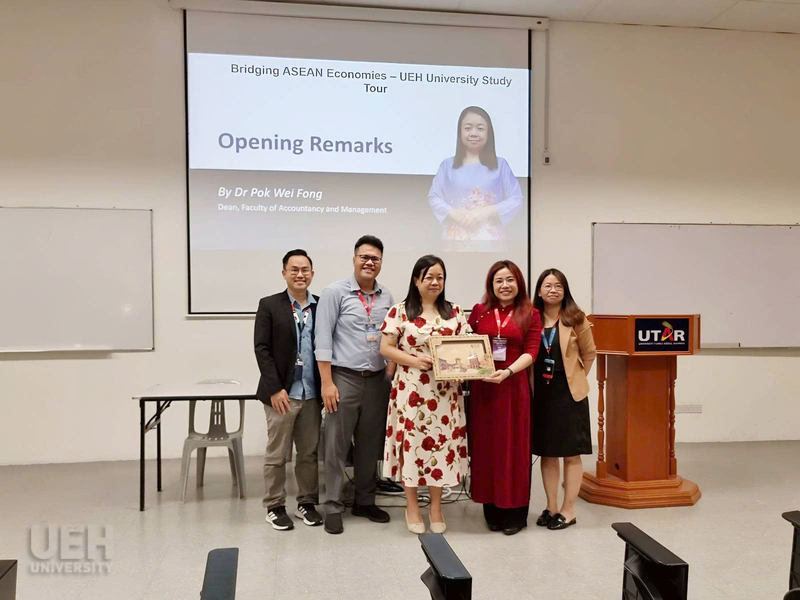 Universiti Tunku Abdul Rahman (UTAR) – One of the partner universities that accompanied ISB ASEAN Co-op students throughout the study tour in Malaysia
Universiti Tunku Abdul Rahman (UTAR) – One of the partner universities that accompanied ISB ASEAN Co-op students throughout the study tour in Malaysia
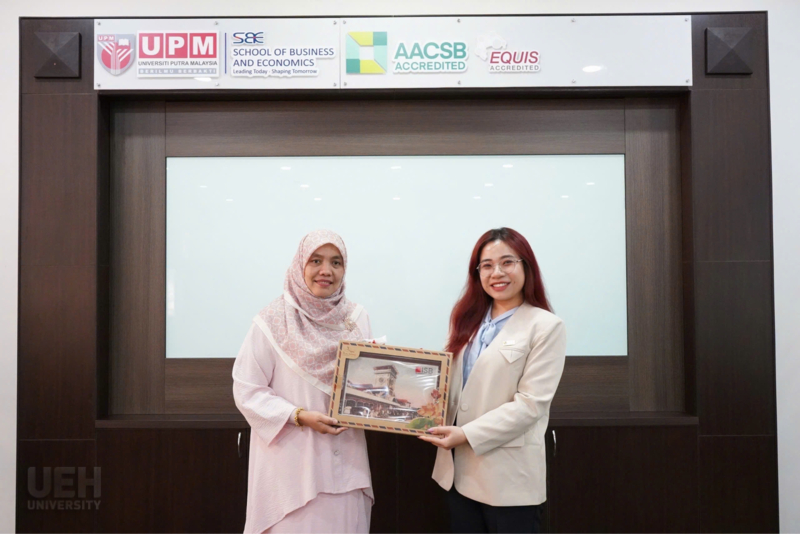 ISB representative presenting a souvenir to the representative of the School of Business and Economics (SPE), Putra Malaysia University (UPM), as a token of appreciation for the school’s support during the ASEAN Co-op Malaysia Study Tour
ISB representative presenting a souvenir to the representative of the School of Business and Economics (SPE), Putra Malaysia University (UPM), as a token of appreciation for the school’s support during the ASEAN Co-op Malaysia Study Tour
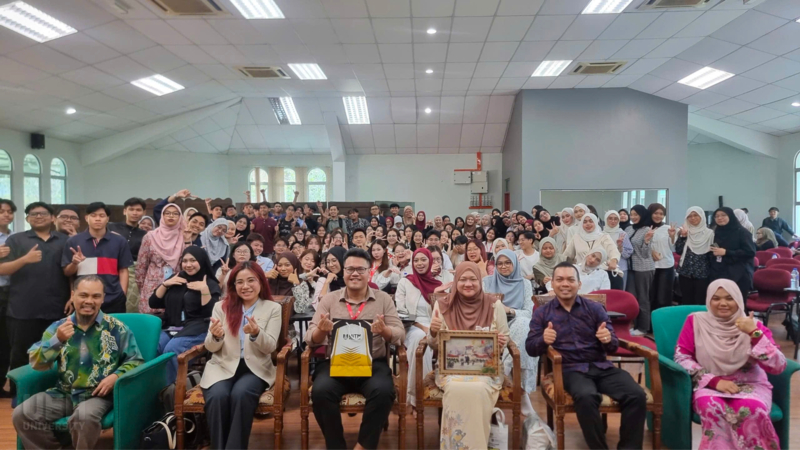 I
I
SB ASEAN Co-op students warmly welcomed at Universiti Teknologi MARA (UiTM)
Some other memorable moments of ISB ASEAN Co-op Cohort 50 students during the Malaysia Study Tour:
News, photos: School of Talents
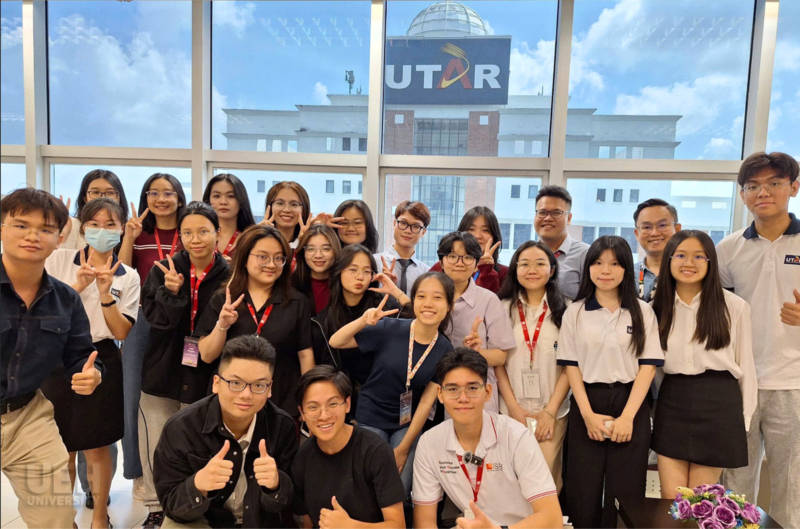
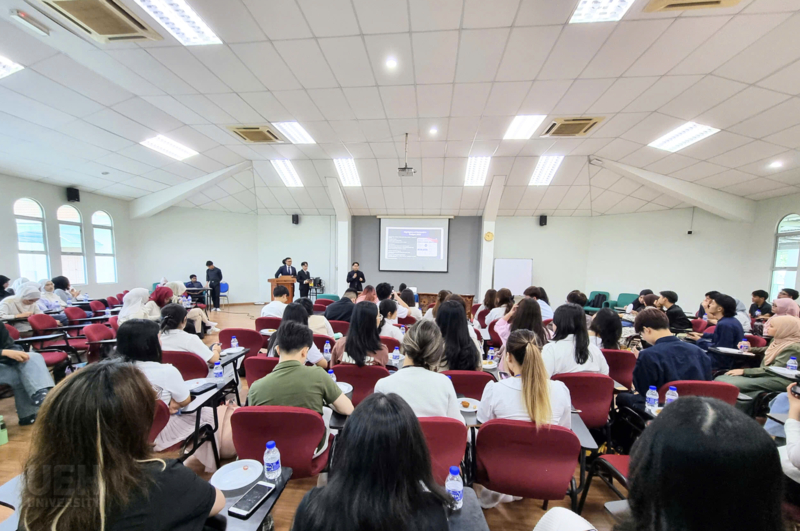
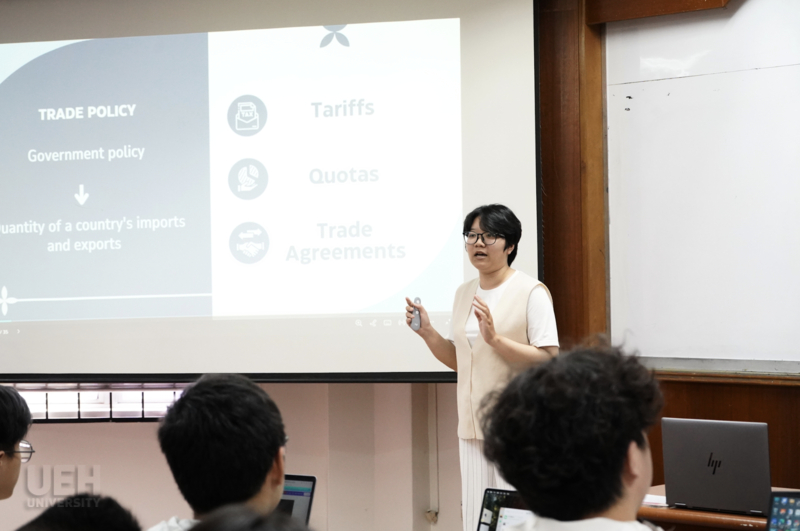
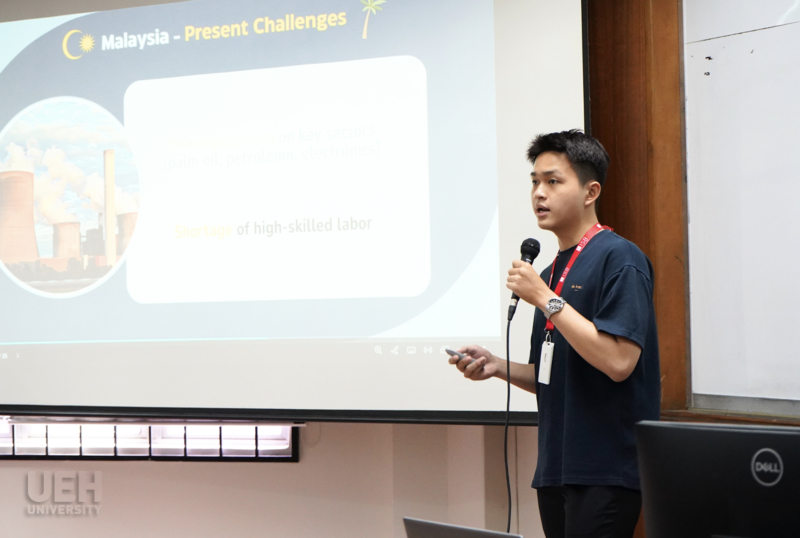
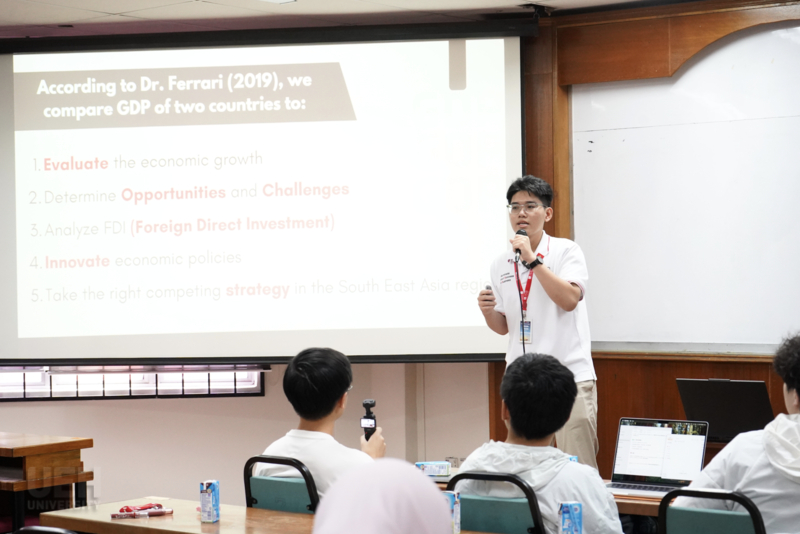
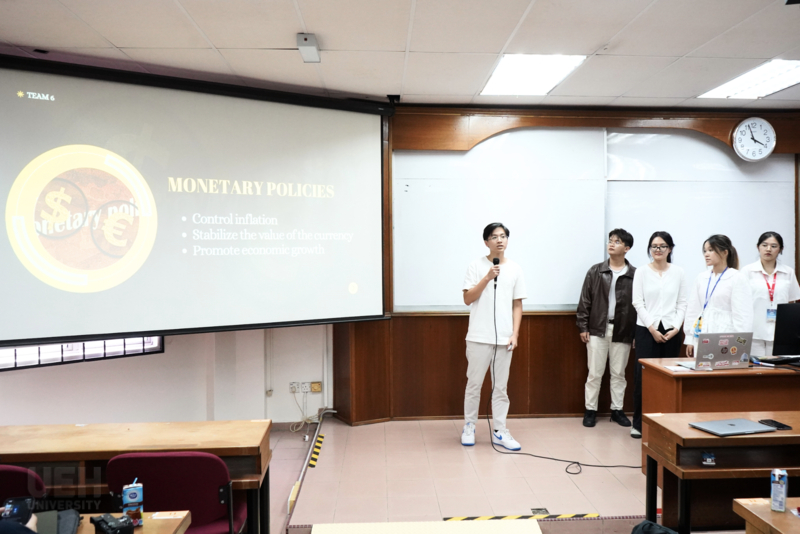
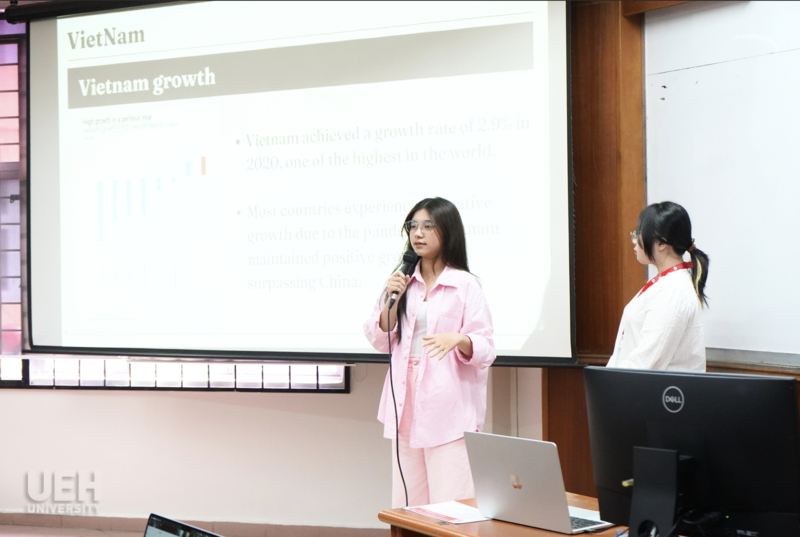
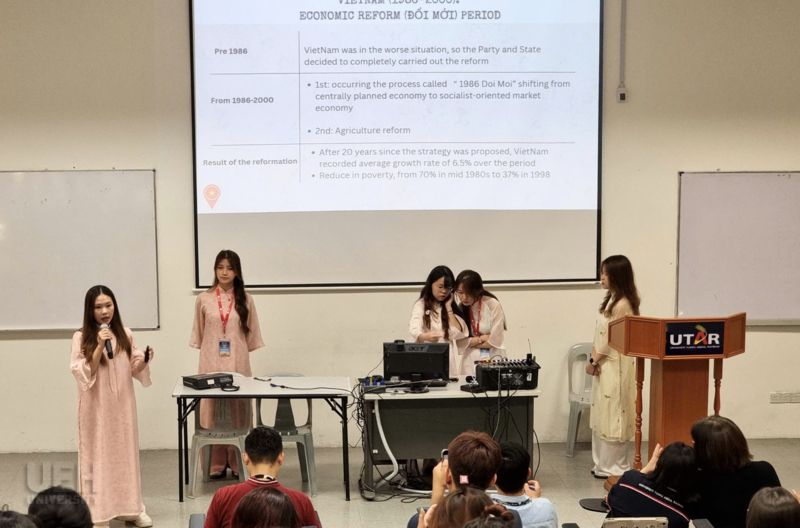
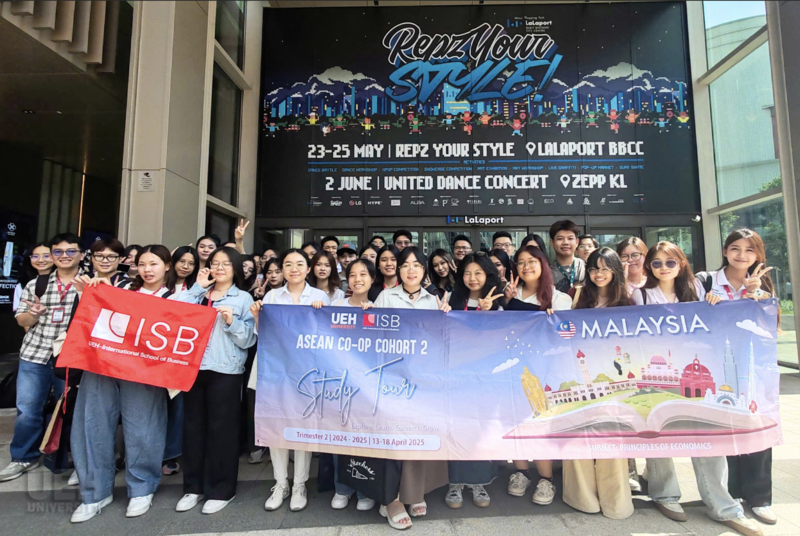
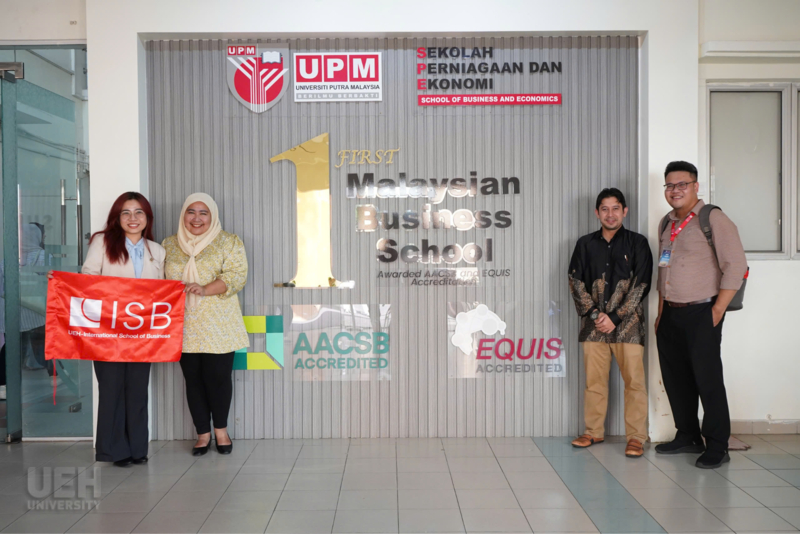
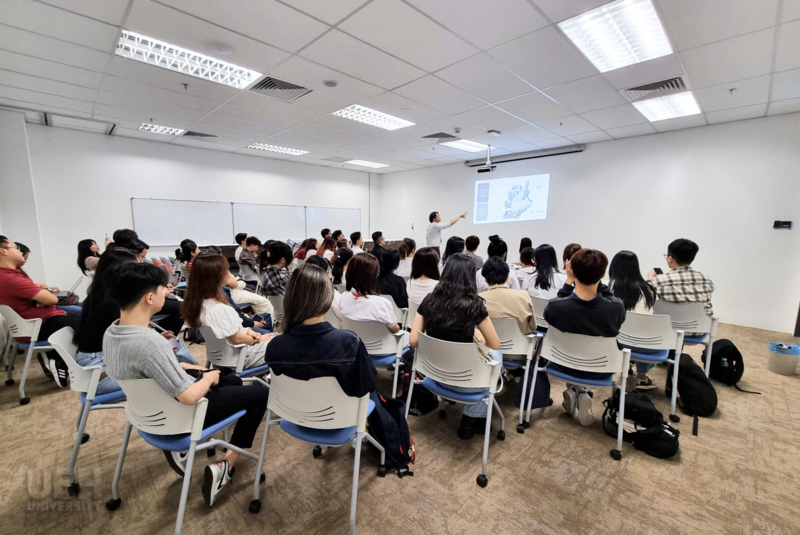
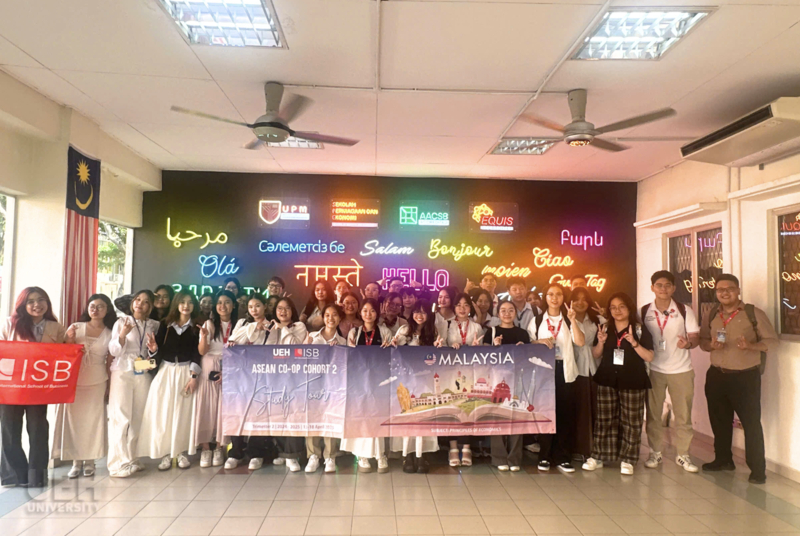
New and photos: ISB




